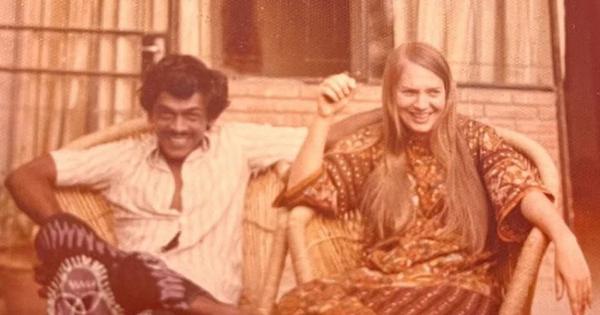Filmmaker Somnath Waghmare explores Gail Omvedt’s legacy and the neglect of Dalit activists in cinema.
Somnath Waghmare’s documentary, ‘Gail & Bharat’, pays homage to the notable anti-caste scholar and activist Gail Omvedt. This film delves into Omvedt’s life, reflecting on her contributions to anti-caste movements, Dalit history, and gender studies. It showcases her journey from America to India, where she became a significant figure in academic and activist circles. Omvedt authored several influential works, including ‘We Will Smash This Prison!: Indian Women in Struggle’, ‘Ambedkar: Towards an Enlightened India’, and ‘Seeking Begumpura: The Social Vision of Anticaste Intellectuals’.
The 80-minute documentary examines her academic background and the evolution of her activism. After completing her dissertation, ‘Cultural Revolt in a Colonial Society: The Non-Brahman Movement in Western India, 1873-1930’, at the University of California, Berkeley, in 1973, Omvedt relocated to India and married Bharat Patankar. The couple settled in Kasegaon village in Maharashtra’s Sangli district, where they continued their activism until her passing in 2021.
Waghmare first encountered Omvedt and Patankar during his student years when he attended public meetings they organized. He recalls being inspired by their work, which ultimately influenced him to create this documentary. He considers her PhD thesis and the book ‘Seeking Begumpura’ as particularly impactful in the field of anti-caste studies. According to Waghmare, Omvedt’s scholarship, alongside that of Eleanor Zelliot, has been crucial in challenging the oppressive Brahminical systems.
Waghmare expressed that Dalit activists have often been overlooked in cinematic representations, stating that notable figures such as Kanshi Ram, Namdeo Dhasal, and Baburao Bagul have not been depicted on screen, despite their significant contributions. In 2017, Waghmare moved to Mumbai for his MPhil at the Tata Institute of Social Sciences and began to document the lives of Gail and Bharat. His previous work, ‘The Battle of Bhima Koregaon: An Unending Journey’, paved the way for this exploration into Omvedt’s life.
The documentary is set to be screened at various universities in the United Kingdom starting from October 14, a date commemorating the conversion of Bhim Rao Ambedkar and his followers from Hinduism to Buddhism. While the film aims to present Omvedt’s arguments through the lens of academic Suraj Yengde, it also serves as an intimate portrayal of her relationship with Patankar. The film captures moments of tenderness, particularly as Omvedt faced health challenges in her later years.
Waghmare included personal anecdotes from their daughter, Prachi Patankar, who reflects on the lifestyle of activist families, marked by constant travel and visitors. Omvedt’s death significantly impacted Waghmare, leading him to pause the project for two years due to the emotional toll. The film ultimately emphasizes Omvedt’s legacy, though it also acknowledges Patankar’s contributions to activism, particularly in addressing contemporary issues related to caste and Hindutva.
Waghmare pointed out the challenges faced by Dalit filmmakers in securing funding, highlighting systemic biases in the industry that favor upper-caste narratives. ‘Gail & Bharat’ is a testament to Omvedt’s vision and the broader struggles against caste, class, and gender oppression, shedding light on the importance of her work in the ongoing discourse on social justice.








